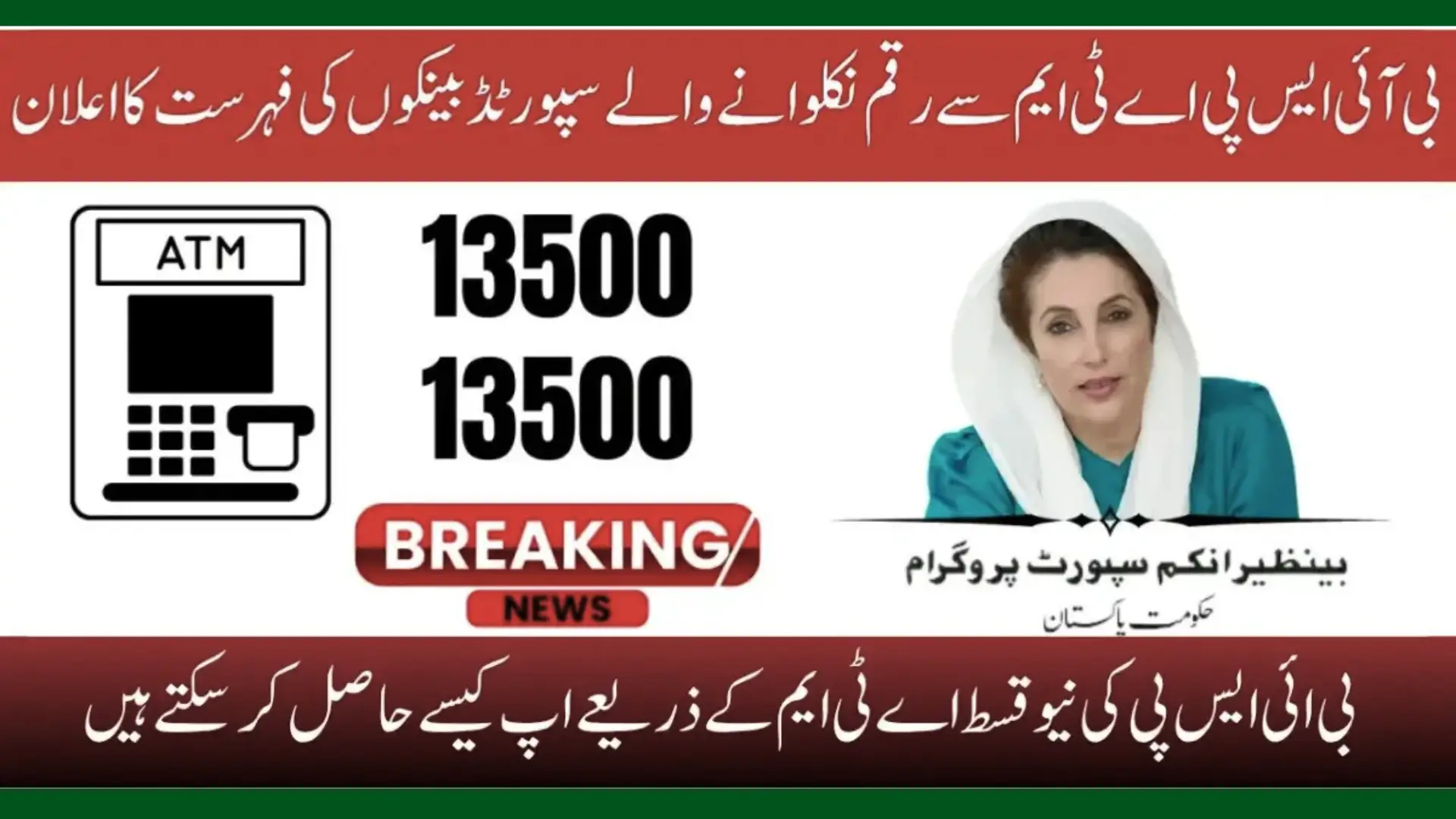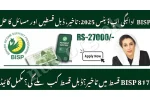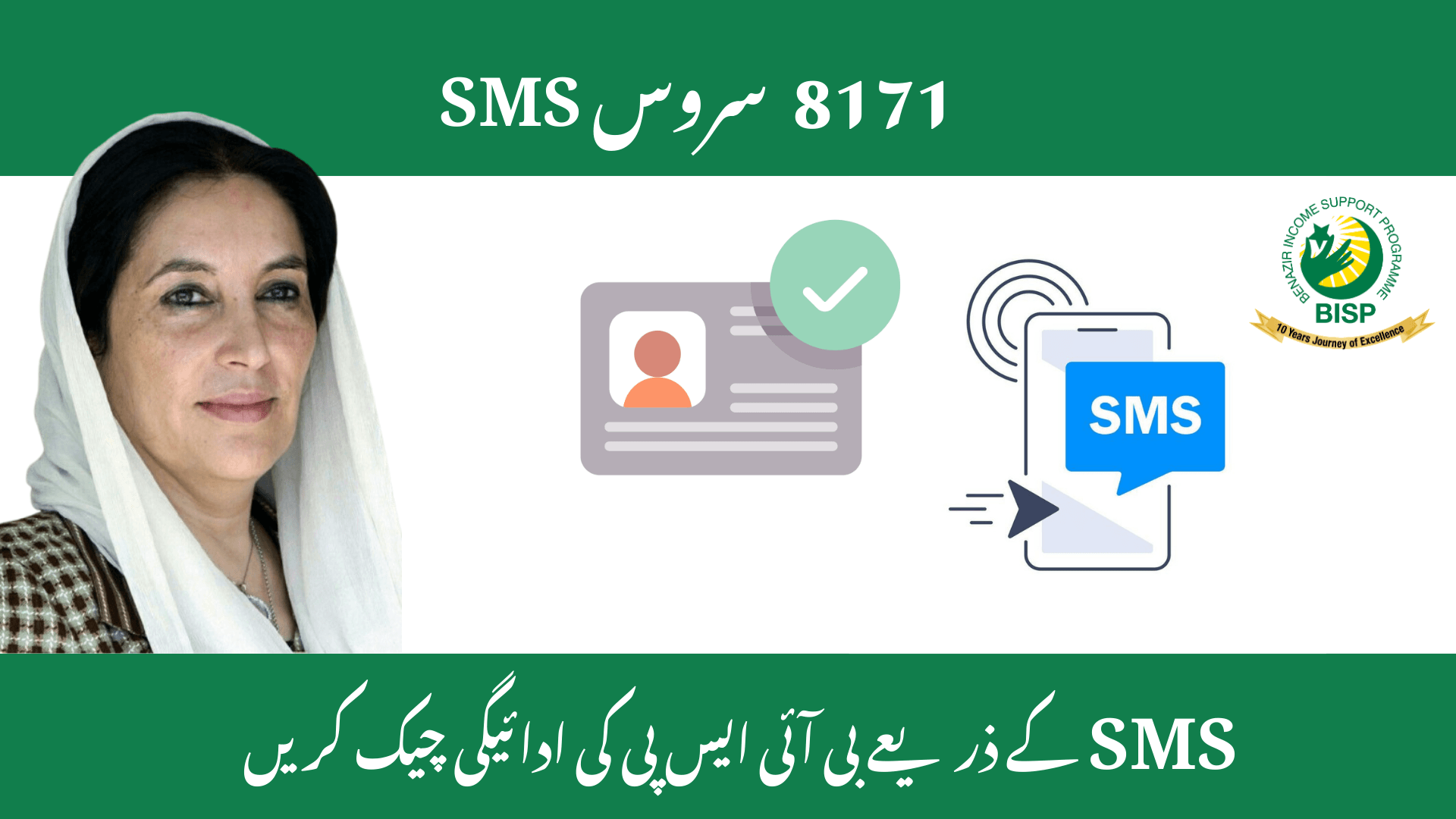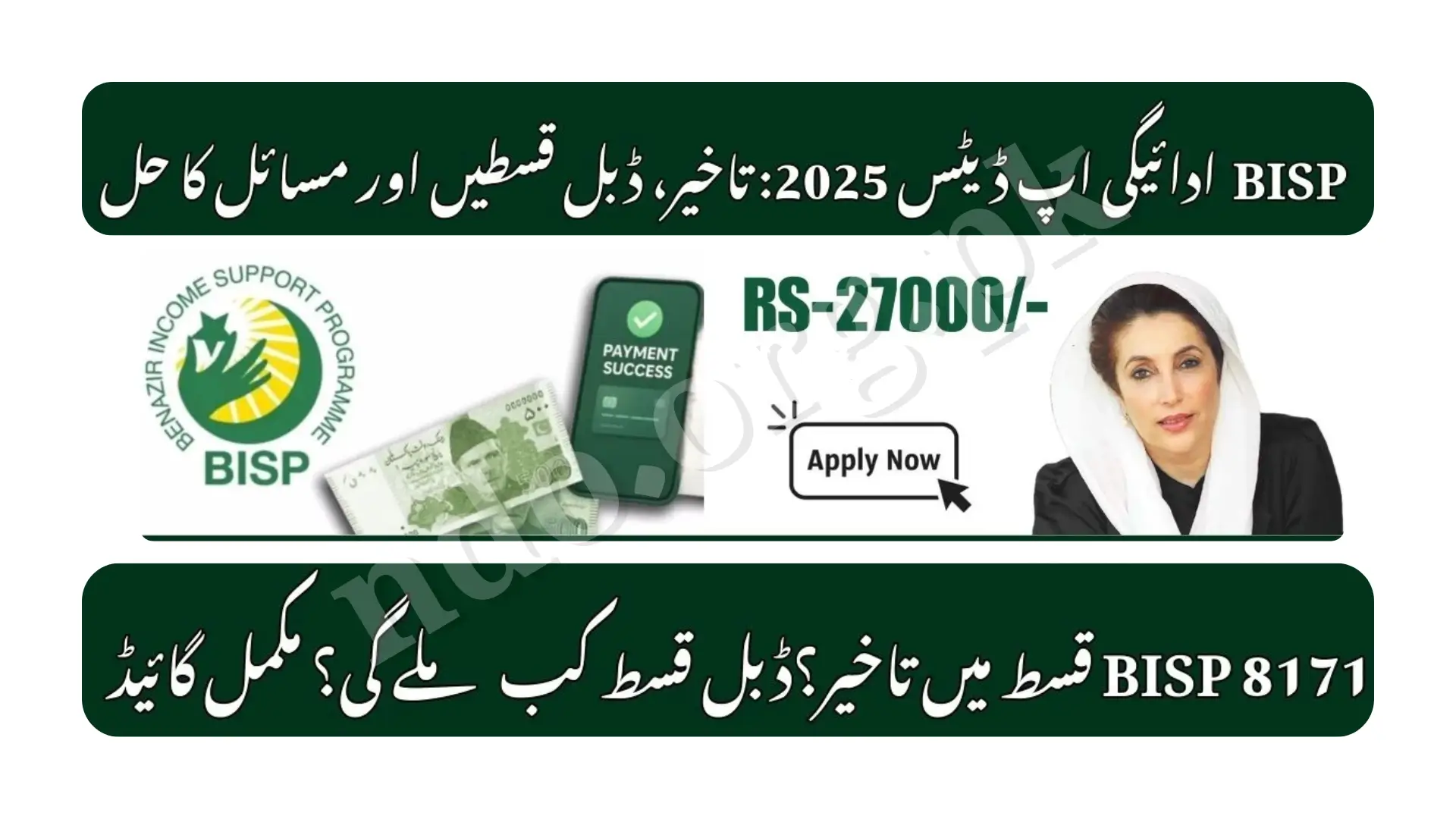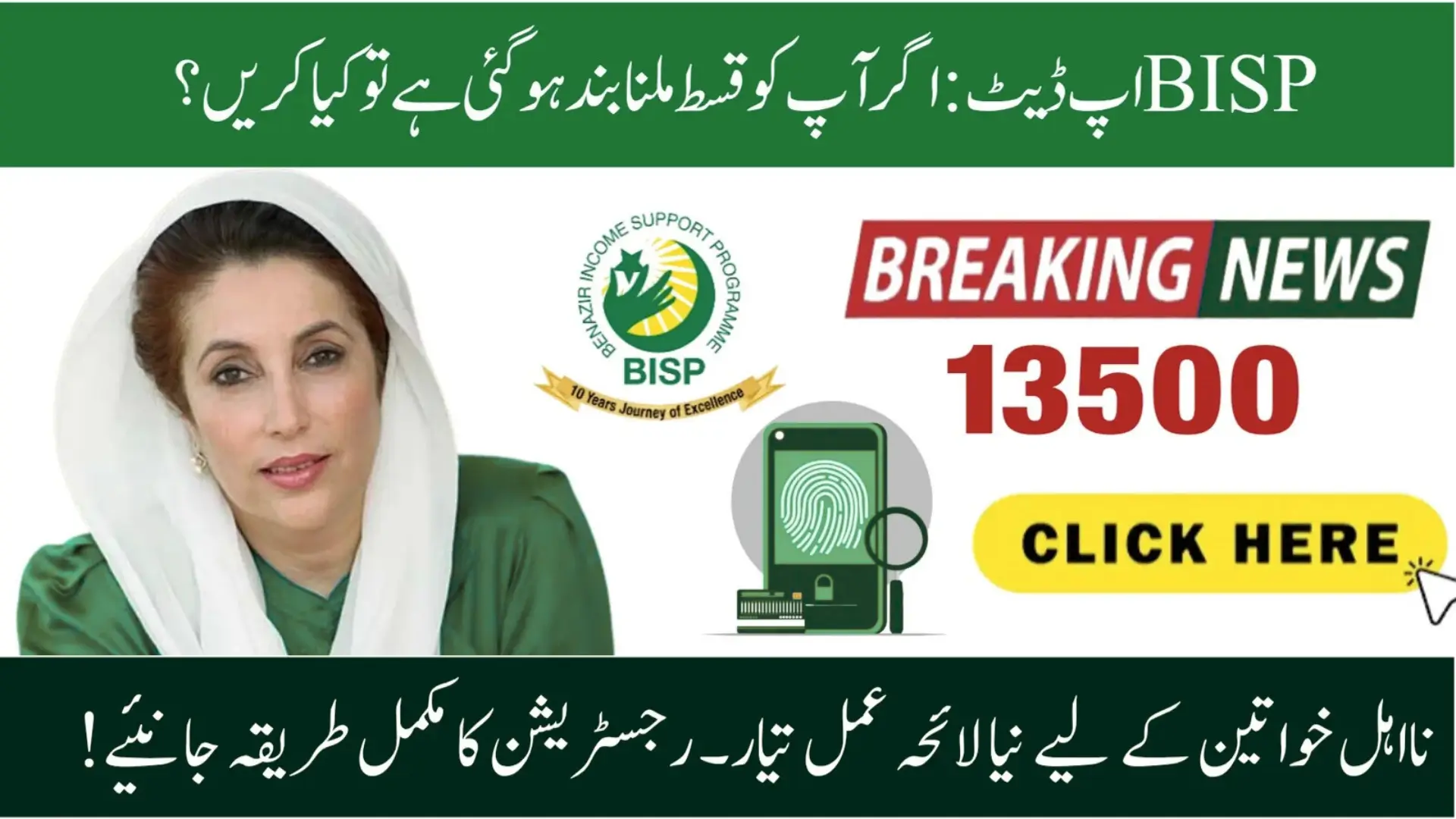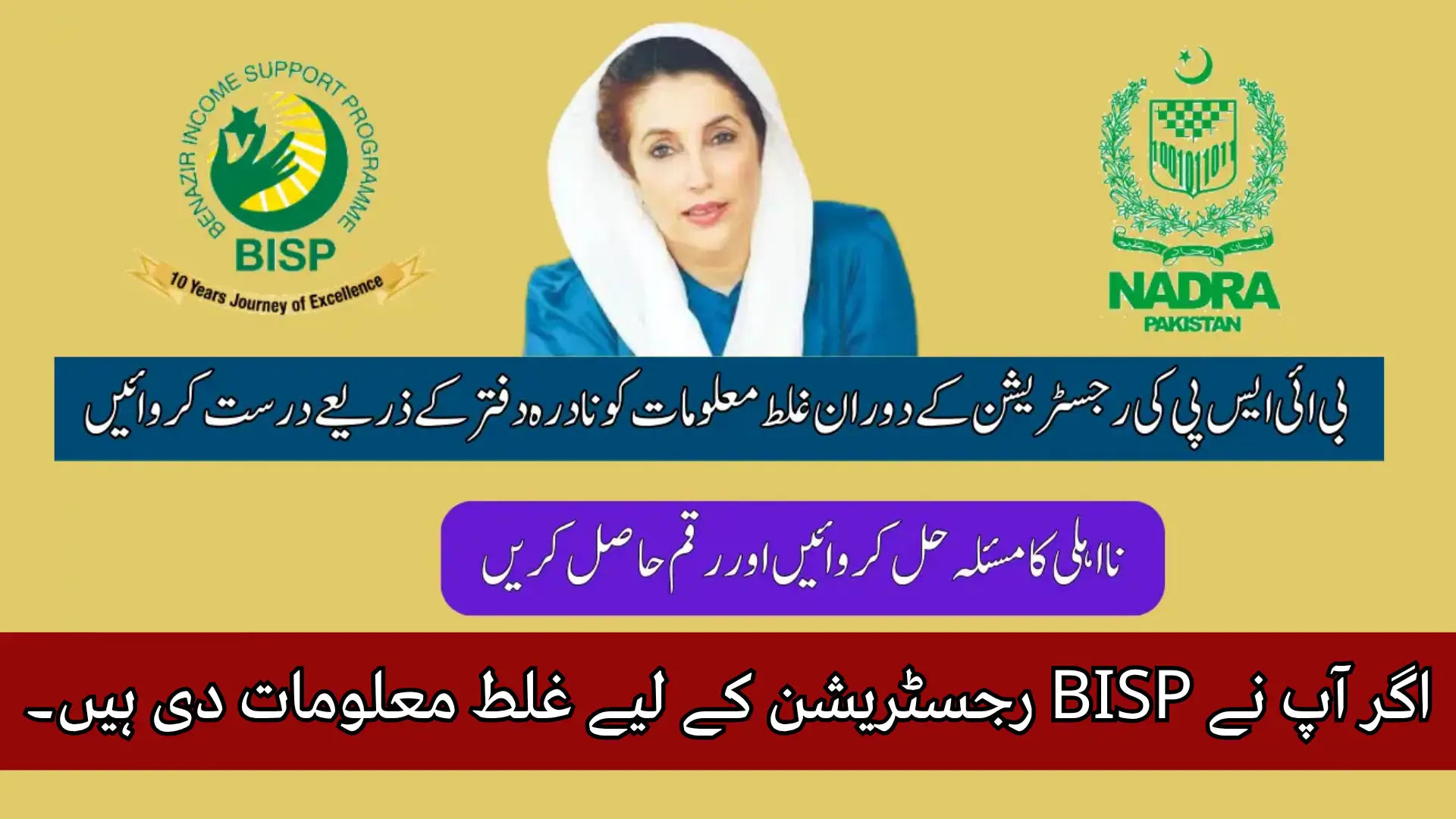BISP ATM Withdrawals Supported Banks List Announced. The Benazir Income Support Programme (BISP) has modernized its payment method, allowing beneficiaries to withdraw ₨13,500 directly from ATMs of partner banks. The State Bank of Pakistan (SBP) has launched a new digital framework to improve security, transparency, and convenience.
Under this system, all payments are linked to the beneficiary’s CNIC and verified through biometric authentication, removing the need for long queues or payment camps.
Get Your ₨13,500 BISP Payment via ATM
Receiving your BISP payment of ₨13,500 through ATM is simple if you follow these steps:
- Check Your Eligibility
- Send your 13-digit CNIC to 8171 via SMS.
- You’ll receive a reply confirming your status.
- Or visit the official BISP 8171 portal and enter your CNIC plus captcha to check payment status.
- CNIC and Biometric Verification
- Use your original, valid CNIC at the ATM.
- Place your thumb on the biometric scanner to approve the transaction.
- This system prevents fraud and ensures funds reach the right person.
- Visit a Partner Bank ATM
- Once your payment is available, visit an authorized bank ATM.
- You’ll receive an SMS from 8171 or your bank with withdrawal instructions.
- Withdraw Your Funds
- Follow on-screen ATM instructions for “BISP / Ehsaas Withdrawals”.
- Insert your CNIC or card and verify with your thumb.
- After successful verification, withdraw the full ₨13,500 amount.
- No ATM fee is charged to BISP beneficiaries.
BISP ATM Withdrawals Supported Banks List 2025
The SBP has directed commercial and microfinance banks to facilitate BISP beneficiaries through “Sahulat Accounts.” Below is the updated list of partner banks supporting ATM withdrawals in major cities.
| Bank Name | Facility Provided | Availability Cities (Phase 1) |
|---|---|---|
| Habib Bank Limited (HBL) | ATM withdrawals & BISP balance check via HBL Konnect & ATMs | Karachi, Lahore, Islamabad |
| Bank Alfalah | Biometric ATM withdrawals for BISP beneficiaries | Karachi, Quetta, Multan |
| Bank of Punjab (BOP) | Sahulat Accounts for direct fund deposit & PayPak cards | Lahore, Faisalabad, Sialkot |
| National Bank of Pakistan (NBP) | Account openings and BISP cash withdrawals | Peshawar, Rawalpindi |
| Khushhali Microfinance Bank | BISP payments in rural areas via biometric machines | Sindh & South Punjab districts |
BISP Payment Framework 2025 – A Digital Upgrade
The State Bank’s new framework focuses on transparency and financial inclusion.
- Each beneficiary gets a Sahulat Account for BISP payments.
- Funds are transferred via RAAST or IBFT for instant credit.
- Beneficiaries use PayPak debit cards for ATM withdrawals.
This shift marks the end of traditional camp-style disbursements and introduces a secure, bank-linked system.
Why the Shift to ATM Payments?
The move to ATM and biometric verification offers many advantages:
1. Security and Transparency
Biometric systems ensure only the registered beneficiary can withdraw money, eliminating fraud and middlemen.
2. Convenience
No need to wait in long queues or travel to payment camps — withdraw cash anytime from the nearest ATM.
3. Financial Inclusion
Opening bank accounts helps beneficiaries join the formal banking system and develop savings habits.
4. Efficiency
Funds reach recipients instantly through digital transfer platforms like RAAST, reducing delays and errors.
Important Details and Tips for BISP Beneficiaries
To make your experience smooth and secure, keep these points in mind:
- Keep Your CNIC Safe: Ensure it is valid and not expired — you can’t withdraw without it.
- Register Your Mobile Number: Active numbers receive alerts from 8171 about payments.
- Avoid Agents and Middlemen: BISP does not charge fees. Anyone asking for money is likely a scammer.
- Update Your Information: If you face biometric issues or CNIC errors, visit NADRA or the nearest BISP Tehsil Office.
BISP Payment Checking Methods
You can easily verify if your ₨13,500 payment is ready before visiting the ATM.
| Method | Steps |
|---|---|
| SMS Check (8171) | Send CNIC → 8171 → receive eligibility status |
| BISP 8171 Portal | Visit https://8171.bisp.gov.pk → enter CNIC & captcha → view payment status |
| Bank Notification | Partner bank sends SMS once funds are credited |
| ATM Inquiry | Insert CNIC or card → select BISP option → check balance on screen |
How the New System Works?
| Step | Action Taken By | Purpose |
|---|---|---|
| 1 | BISP Head Office | Authorizes payment release to beneficiaries |
| 2 | State Bank of Pakistan | Transfers funds to partner banks |
| 3 | Partner Bank | Deposits funds into Sahulat Accounts |
| 4 | Beneficiary | Withdraws funds using CNIC & biometric at ATM |
This cycle ensures a transparent and traceable transaction trail.
Benefits of the BISP ATM Withdrawal System
- Direct Access to Funds: No need for agents or camp sites.
- 24/7 Availability: ATMs are open anytime for withdrawals.
- No Extra Charges: Withdrawals are free, even from other banks’ ATMs.
- Secure Transactions: Biometric and CNIC-based verification stops fraud.
- Women’s Empowerment: Female beneficiaries can independently access their funds.
Future Expansion Plans
The BISP and State Bank aim to expand this system to all districts of Pakistan by mid-2026. Additional banks like Meezan Bank and UBL are expected to join the framework to ensure nationwide coverage.
Conclusion
The BISP ATM Withdrawal System 2025 is a major milestone in Pakistan’s social welfare reforms. It replaces outdated manual methods with a safe, digital process that empowers millions of beneficiaries.
By opening bank accounts and linking payments with CNIC and biometric verification, BISP ensures that every rupee of the ₨13,500 grant reaches the right person, securely and transparently.

